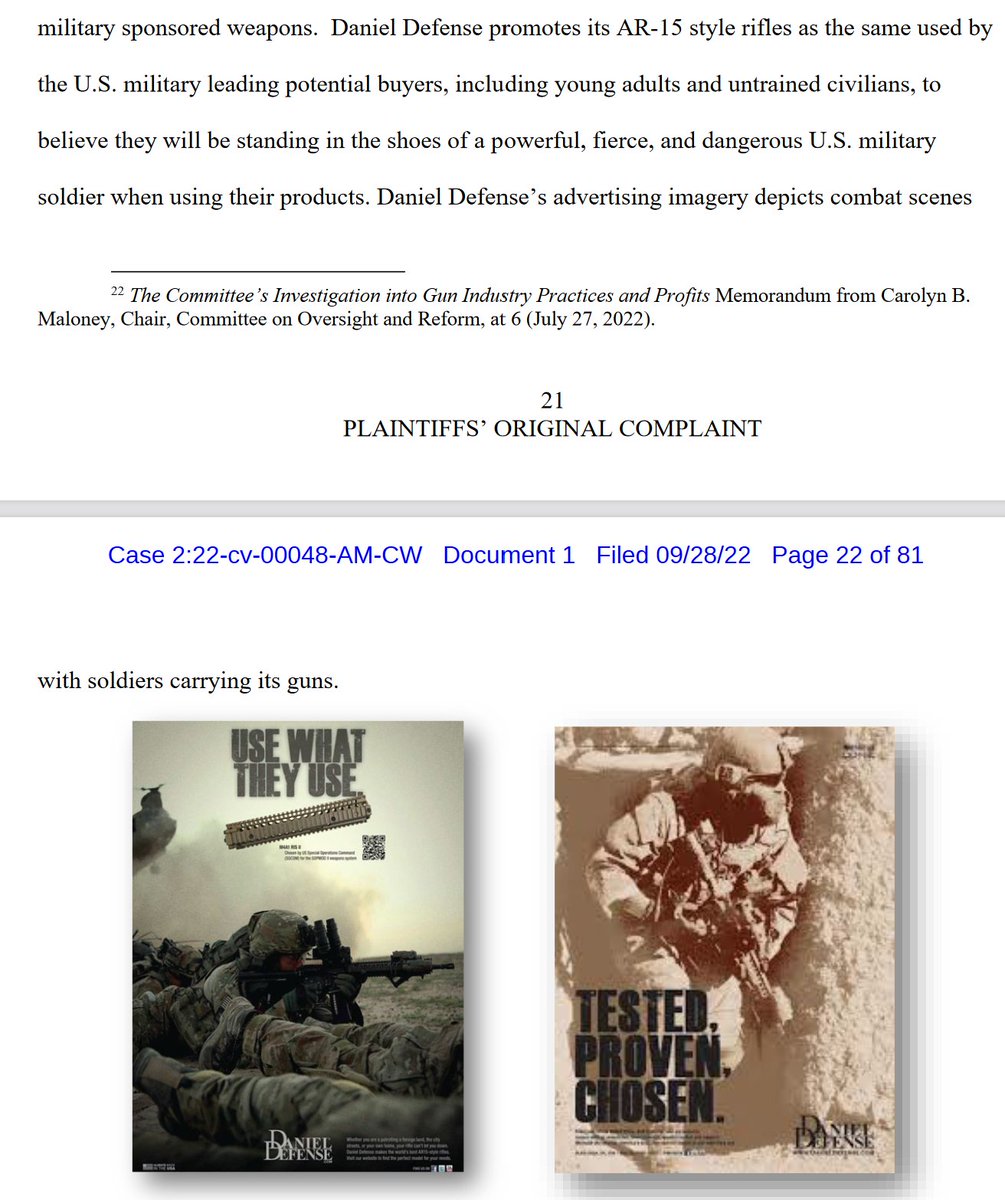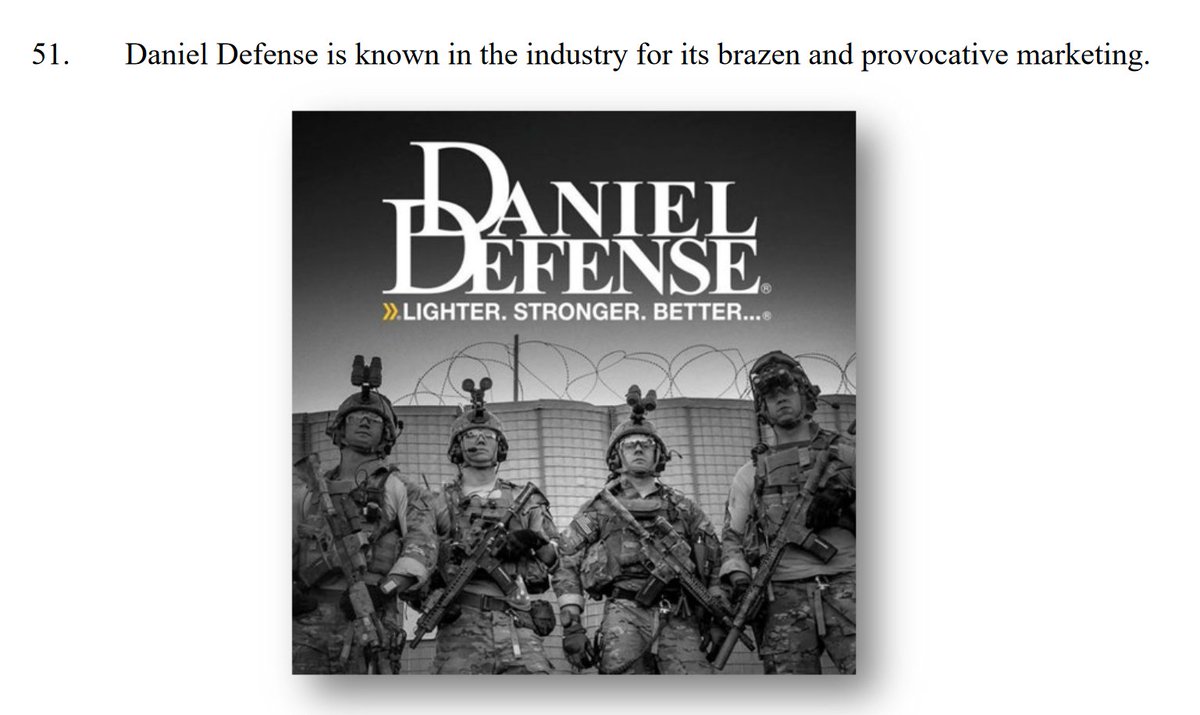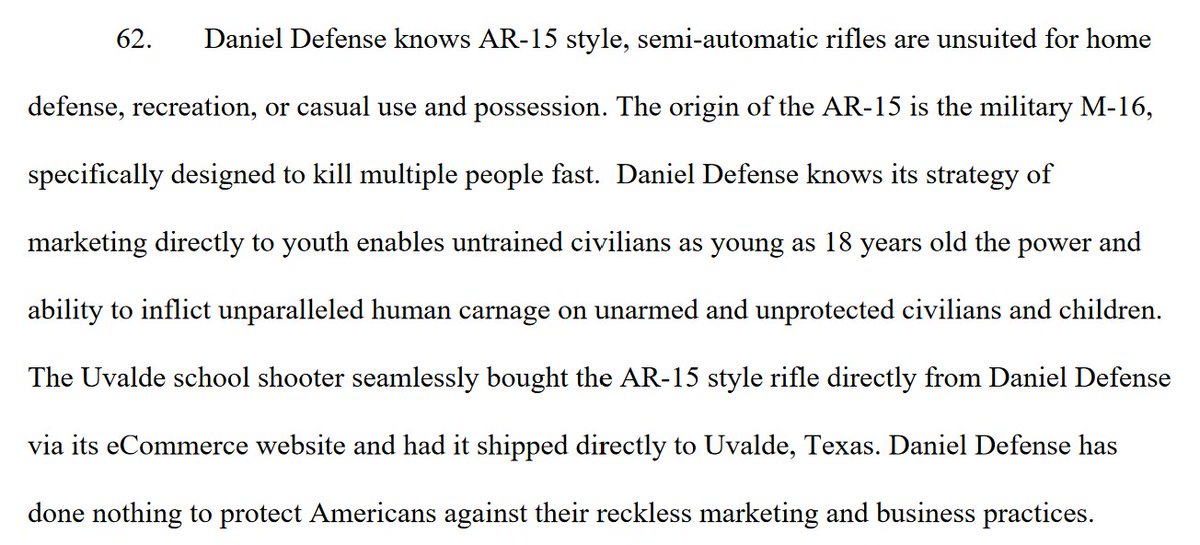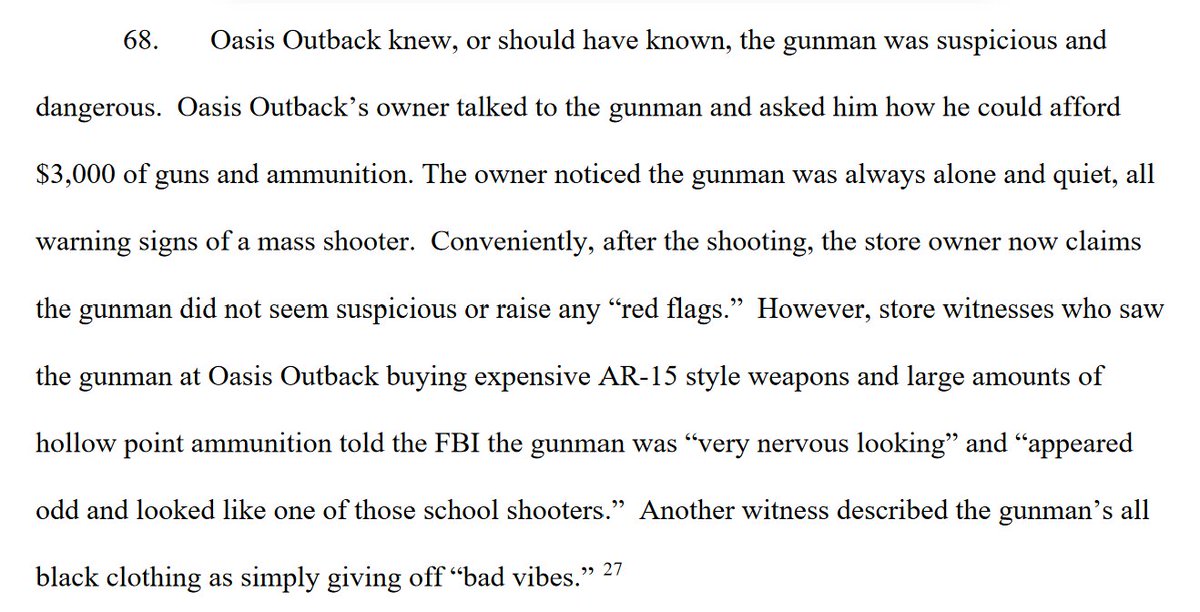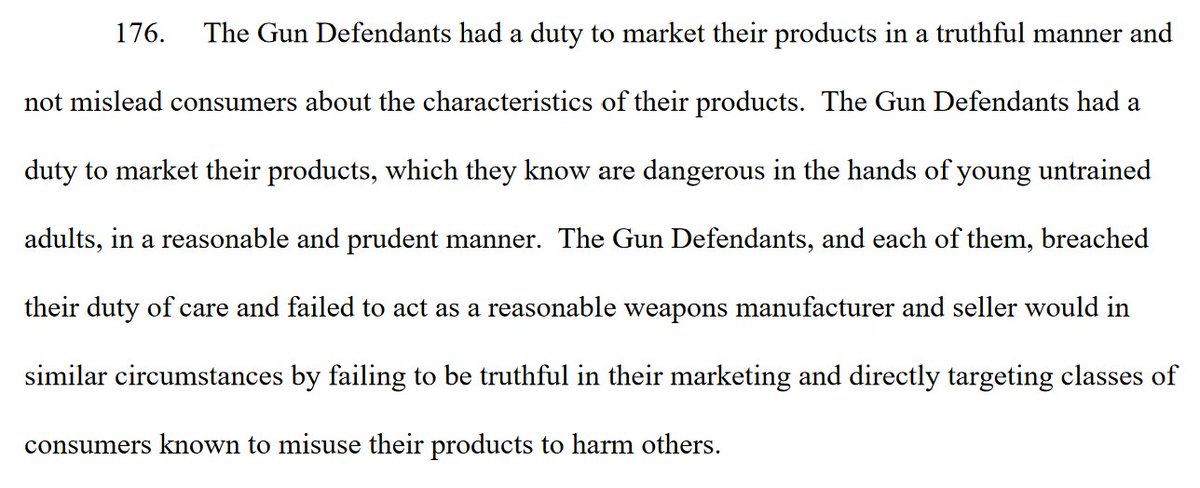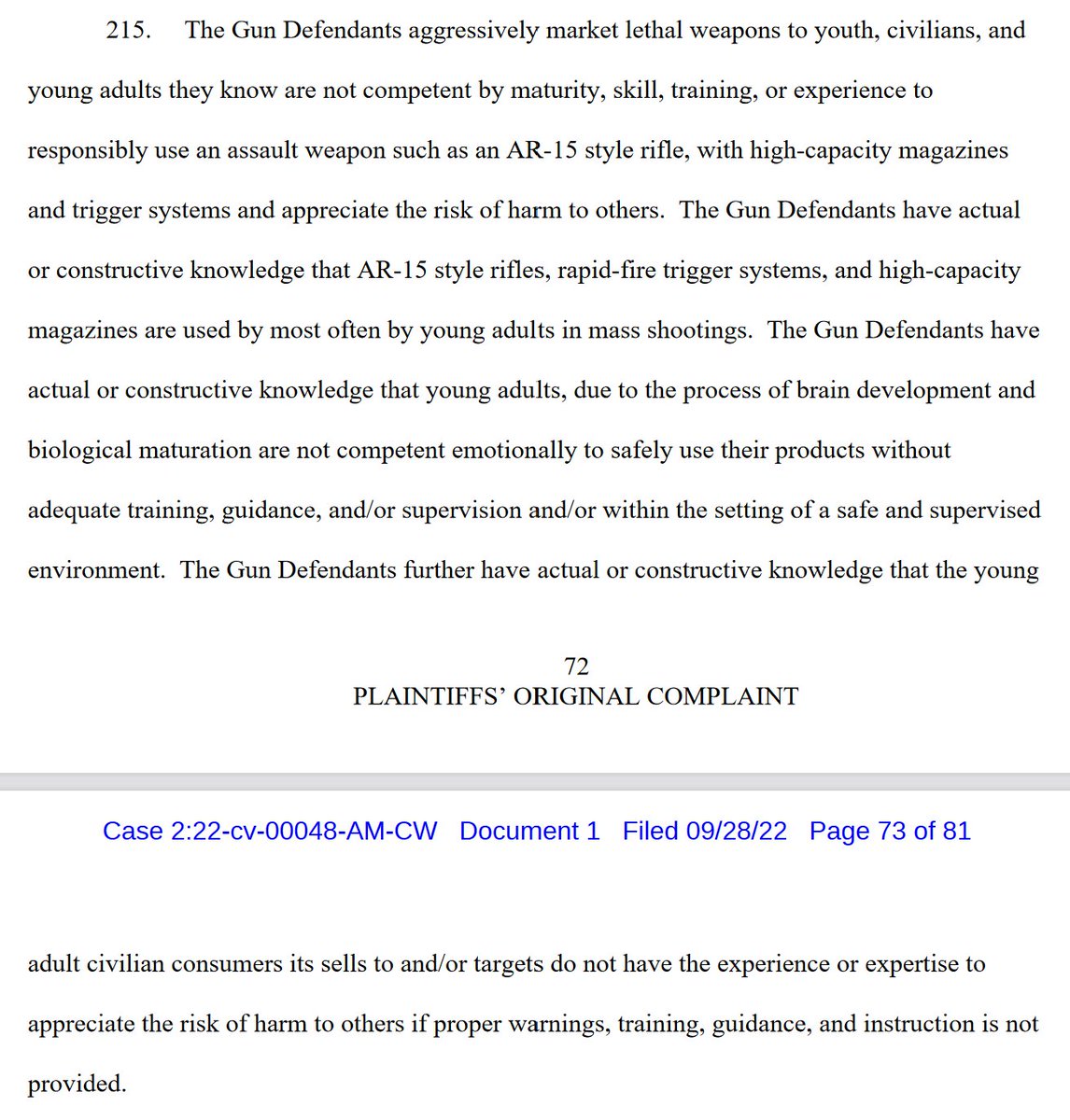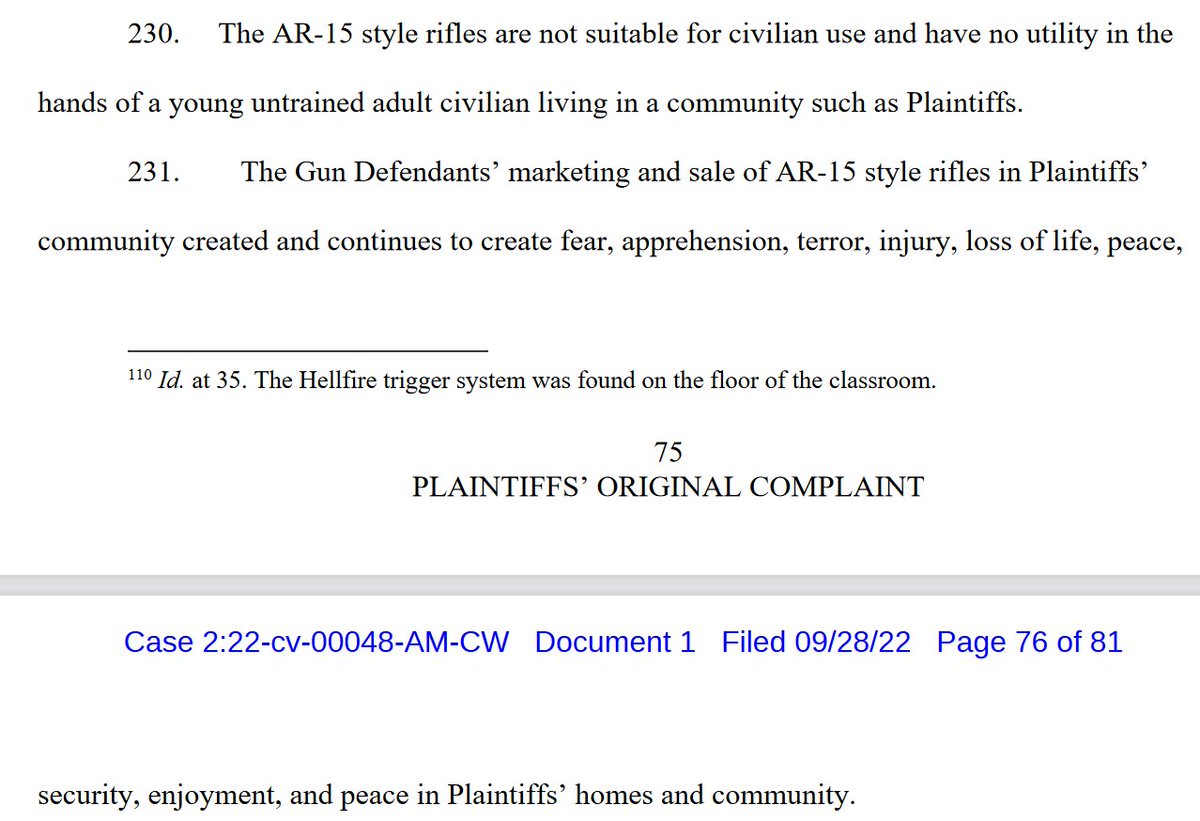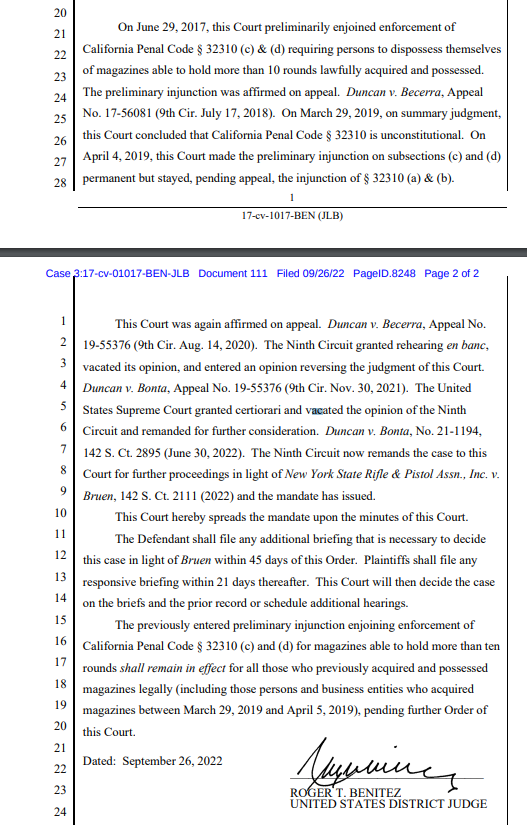Analysis: Federal Judge Charts Path to Upholding Felon Gun Bans
We now have a new framework for how the federal prohibition on felons owning guns could be constitutional.
District Judge David Counts of Western Texas upheld the conviction ban this week. That’s despite the fact that he struck down the federal ban on people indicted for felonies receiving firearms just a few days beforehand. And he did it under the Supreme Court’s Bruen standard, making him among the first to apply it to federal law.
His logic will sound familiar to anyone who followed his opinion in the indictment case. After calling into question the constitutionality of the indictment ban under Bruen’s text-and-tradition standard, he did the same for the conviction ban.
“Whether this Nation has a history of disarming felons is arguably unclear—it certainly isn’t clearly ‘longstanding,’” Counts said in that ruling, dismissing a claim made in the Supreme Court’s landmark Heller decision.
However, he also outlined how he believed the conviction ban could be constitutional under the Bruen test even without a historical gun law as an analogue. Instead of relying on gun laws, Counts argued, it is better to look at how groups have been excluded from the political rights afforded to “the people.” Those historical examples provide a better guide, he said.
And now, just a few days after laying out his hypothetical test for the convicted felon prohibition, he has applied it in practice. He relied on the fact that governments in the early days of the republic prohibited people from voting if they had been convicted of certain crimes and those inciting people to violence could be prohibited from assembling in public.
“Indeed, there was a ‘longstanding’ historical tradition from the time of ratification that those convicted of a crime could be excluded from the right to vote,” Counts wrote. “For example, one year after the Second Amendment’s ratification, Kentucky’s Constitution stated, ‘[l]aws shall be made to exclude from… suffrage those who thereafter be convicted of bribery, perjury, forgery, or other high crimes and misdemeanors.’ Vermont’s Constitution followed one year later, authorizing the removal of voting rights from those engaged in bribery or corruption during elections. As of 2022, only two states and the District of Columbia do not restrict felons’ voting rights.”
This framework is similar in some respects to one used by Justice Amy Coney Barrett in Kanter v. Barr. Barrett argued in her dissent that those convicted of felonies could be prohibited from owning guns (though only if they committed violent felonies) because there was a tradition of barring dangerous groups from gun ownership as evidenced by early republic bans on Native Americans and Catholics owning guns. New York has sought to use the same argument to defend its gun laws in court.
Of course, the main problem with the Barrett approach is it relies exclusively on bigoted gun bans and attempts to generalize and sterilize them as applying to those early Americans considered “dangerous.” But it is highly questionable why the bans presented as evidence for this theory only fell along racial and religious lines. It seems dangerousness was playing a secondary role in those particular bans.
The Counts approach is not as susceptible to that pitfall. Clearly blacks, other minorities, and women were also excluded from protections afforded to “the people” in the founding era. Certainly, they were denied the right to vote in nearly all circumstances, and blacks in particular were denied all of their rights.
In fact, people in the founding era were as likely to be excluded from protections afforded to “the people” as they were to be included in them. So, relying on that approach for justifying modern gun bans has the potential to result in a fairly broad reading of what’s permissible under the Second Amendment.
Still, the Counts approach does at least provide some examples of longstanding rights restrictions that are based on a person’s criminal actions rather than their race or creed. So, it has a bit more to stand on.
Although, there are other weaknesses too. The number of crimes covered under modern felony laws dwarfs the number in the founding era. While the analogue of felons being prohibited from voting seems to fit fairly well with felons being barred from owning guns, the ban on inciting speech isn’t really the same since it isn’t a permanent ban on protesting for the offender.
It’s likely federal courts will refine the Counts approach if they do adopt it as a framework moving forward. His framework isn’t without its problems, and it’s among the first attempt at reconciling federal gun prohibitions with the Bruen standard. But it has the potential to become very influential among Counts’ piers moving forward.

